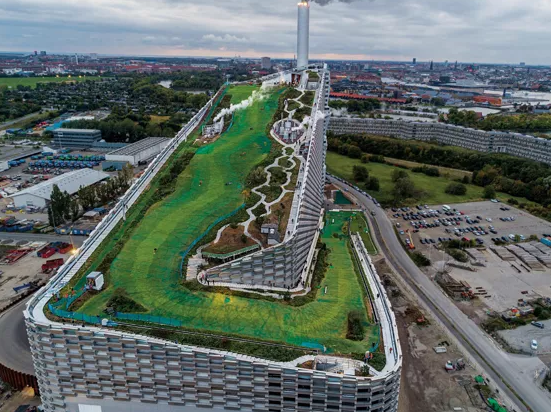(单词翻译:单击)
中英文本
For that same half century, environmentalists have been warning of limits to growth. The new "circular economy" movement is different. It's a collection of strategies -- some old, such as reducing, reusing, and recycling, and some new, such as renting rather than owning things -- that together are meant to reshape the global economy to eliminate waste. The circular economy doesn't aim to end growth; it aims to bend how we do things back into harmony with nature, so that growth can continue. "Prosperity in a world of finite resources," as European environment commissioner Janez Potocnik once put it, in the foreword to an Ellen MacArthur Foundation report. It said the circular economy could save European businesses up to $630 billion a year.
也是在那半个世纪里,环保主义者不断警示经济增长的极限。但新兴的“循环经济”运动与之不同。它是多种策略的集合--其中包括一些老办法,例如“减少购买、重复使用、回收再造”;还加入了新理念,包括“租用胜于持有”--共同效力于重塑全球经济、杜绝废物。循环经济的目的不在于停止发展,而是要扭转我们的运作方式,使之再与自然和谐一体,这样才能持续发展。这就是欧洲环境事务专员亚内兹·波多尼克在为艾伦·麦克阿瑟基金会的报告撰写序言时所称的“在有限资源下维持繁荣”。报告指出,循环经济可为欧洲企业每年节省高达6300亿美元。
The idea is catching on, particularly in Europe, that small, crowded, rich but resource-poor continent. The European Union is investing billions in the strategy. The Netherlands has pledged to go fully circular by 2050. Amsterdam, Paris, and London all have plans. "It must happen," said Wayne Hubbard, head of the London Waste and Recycling Board, when I asked whether the circular economy could happen.
这一理念已经开始流行,尤其是在欧洲--那块窄小、拥挤、富裕但资源匮乏的大陆。欧盟为这一策略投入数十亿美元。荷兰承诺在2050年彻底实现资源循环。阿姆斯特丹、巴黎和伦敦都心怀大计。“必须实现。”当我问及伦敦废物回收委员会主席韦恩·哈伯德,循环经济是否能实现时,他回答说。

One man who definitely thinks it could happen, and whose work has proved revelatory to many others, is American architect William McDonough. With German chemist Michael Braungart, he wrote the visionary 2002 book Cradle to Cradle, which argues that products and economic processes could be designed such that all waste becomes fodder for something else. Before setting off for Europe, I made a pilgrimage to McDonough's office in Charlottesville, Virginia. Our conversation ricocheted from his childhood in Tokyo, through Plato, Aristotle, and Buckminster Fuller, to some new compostable blue jeans he was excited about, before I finally managed to ask him the nagging question: Is all this talk of an end to waste just pie in the sky?
有一个人肯定相信这可以实现,而他的贡献也启发着众多后继者,那就是美国建筑师威廉·麦克多诺。麦克多诺与德国化学家迈克尔·布劳恩加特于2002年合着出版了富于远见的《从摇篮到摇篮》,提出产品和经济模式可以通过合理设计,让一切废物都化为其他工业的养料。去往欧洲之前,我到位于维吉尼亚州夏洛茨维尔市的麦克多诺的办公室“朝圣”。我们的交谈天马行空,从他在东京的童年聊到柏拉图、亚里士多德、建筑师巴克敏斯特·富勒,以及令他兴奋的新产品可堆肥蓝色牛仔裤。到最后我才得空向他提出那个尖锐的问题:所有这些关于终结垃圾的高谈阔论是否都只是空中楼阁?
"It's absolutely pie in the sky, no question about it," McDonough said. "You need pies in the sky to help us go forward. Because remember what Leibniz said."
“毫无疑问,绝对是空中楼阁。”麦克多诺说,“必得空中有楼阁,才能努力向上。要牢记莱布尼茨所说。”
重点讲解
1.bend back 扭转
Well, bend it back or tell me what the hell i'm doing here.
把它变回去,或者告诉我到底来这干嘛。
2.catching on 变得流行
It'll never catch on in libraries.
这种方式决不会在图书馆流行。
3.pie in the sky 空想的计划
His plans for converting his house into an antique shop are just pie in the sky.
他想把他的房子改造成一个古玩店,那种计划只不过是空想而已。


